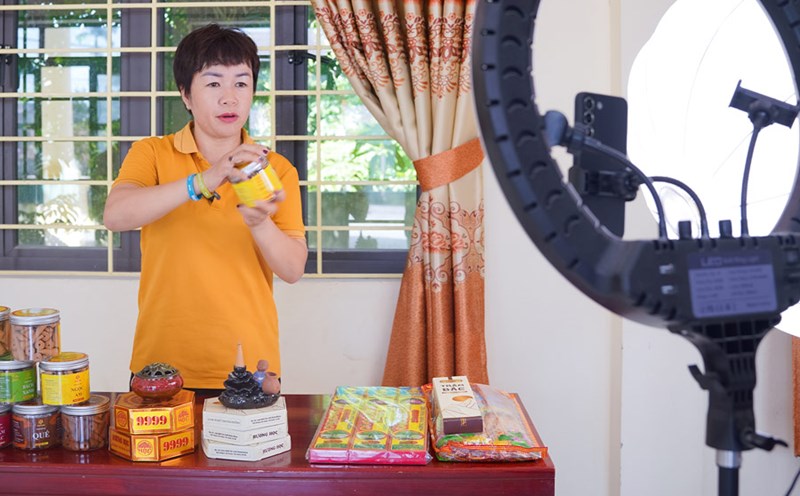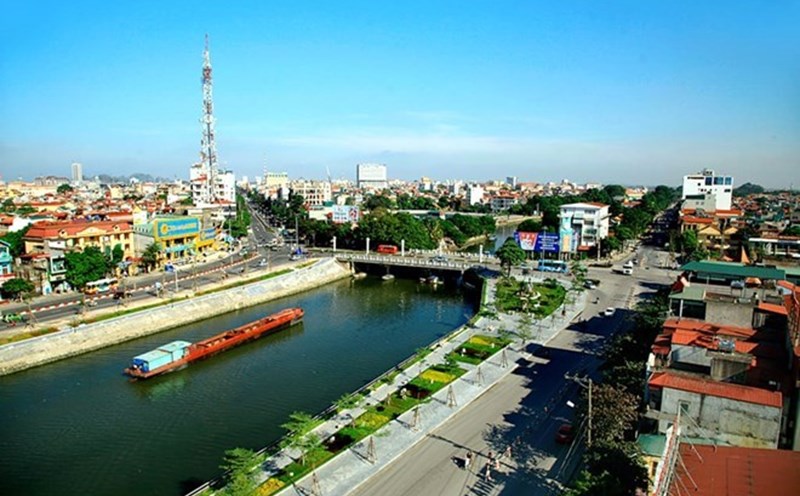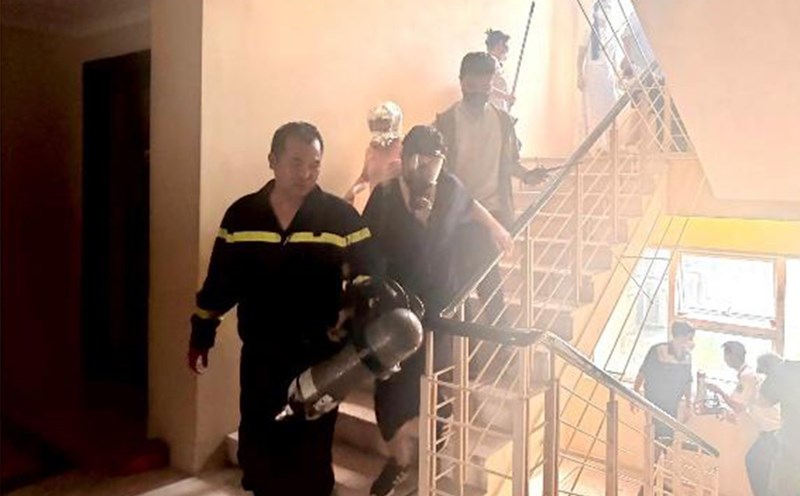We can be ready with all resources, from finance to human resources, land funds, but if we cannot find a way to unlock nature, we cannot do agriculture sustainably, Vinamilk representative shared when opening the trip to Green Farm Tay Ninh of a group of more than 30 experts and personnel working in the field of sustainable development at many leading enterprises and units in Vietnam.
This is an activity of the Sustainability Connect Trip & talk program organized by the Vietnam Business Council for Sustainable Development under the Vietnam Federation of Commerce and Industry (VBCSD-VCCI), with the inspiring theme: " unlocking nature, sustainable development".
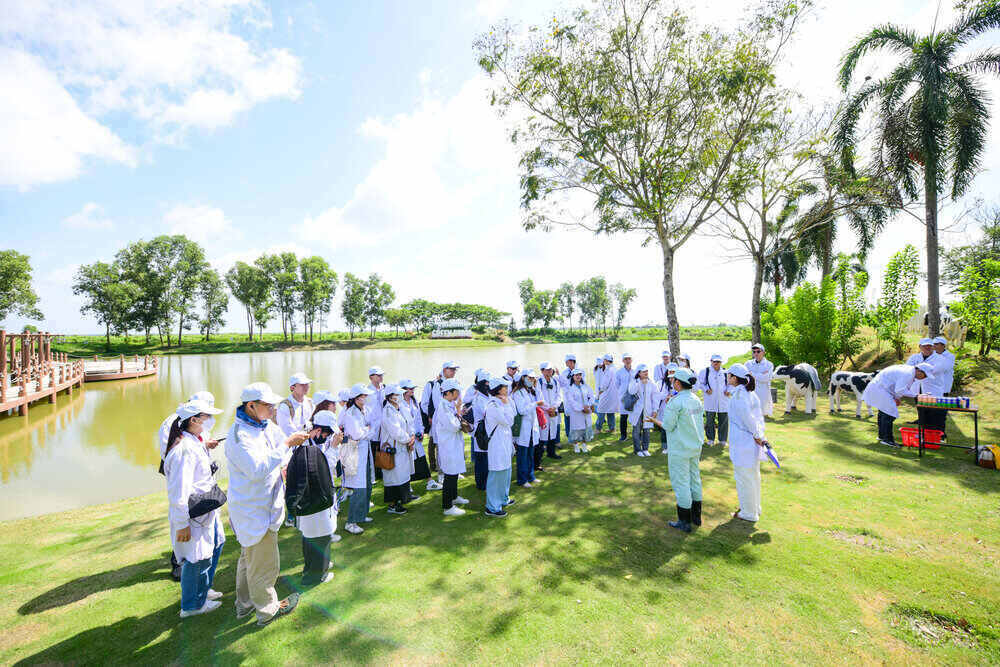
Opening the natural key" - the approach of sustainable agriculture
Although he often welcomes tour groups from abroad to visit, this time, the story of Green Farm Tay Ninh is told through a new lens. Electric cars take us to areas for livestock farming, farming, waste treatment... to see firsthand how Vinamilk "unlocks" nature, turning the sunny and windy land into a farm with the name "wshi milk resort", following the sustainable development orientation.
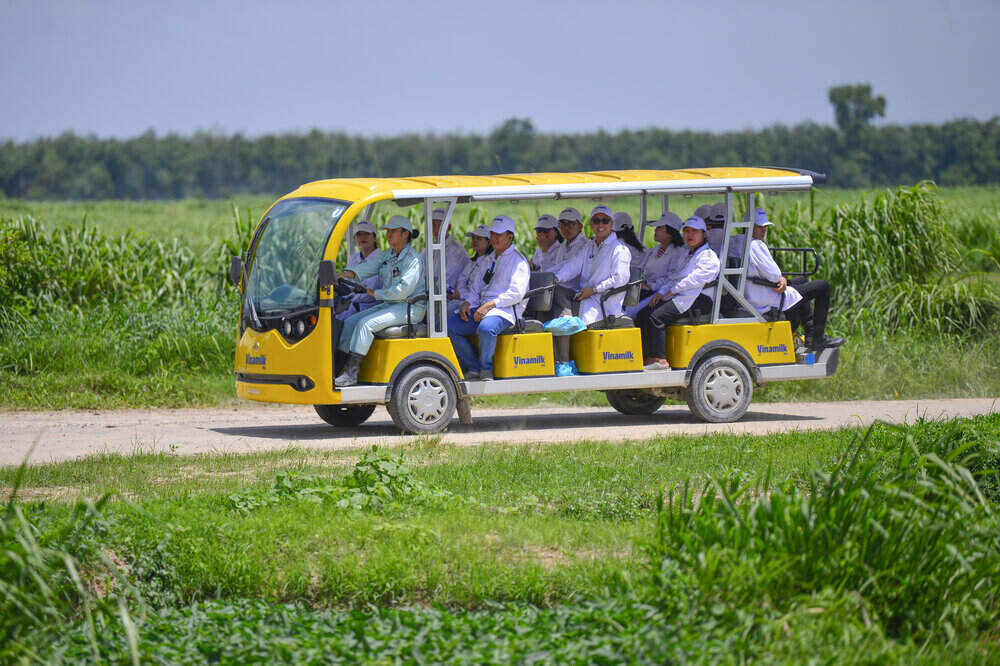
Many questions about this journey are gradually being opened by Vinamilk by the employees working directly here. Pointing to the eye-catching Mombasa grass field, Mr. Nguyen Van Minh - Head of the Crop Production Department of Vinamilk Green Farm Tay Ninh, introduced to us 500 hectares of fertile land that meets European Organic standards, one of the most strict agricultural standards today.
"3 years" - the number Mr. Minh mentioned surprised many people. That is the time when Vinamilk completely "does nothing" to rest the land, purify the remaining substances, and return to the most natural state. That was the time when agricultural experts from Vinamilk, Japan... "eat and sleep" with the land to understand this land most thoroughly.
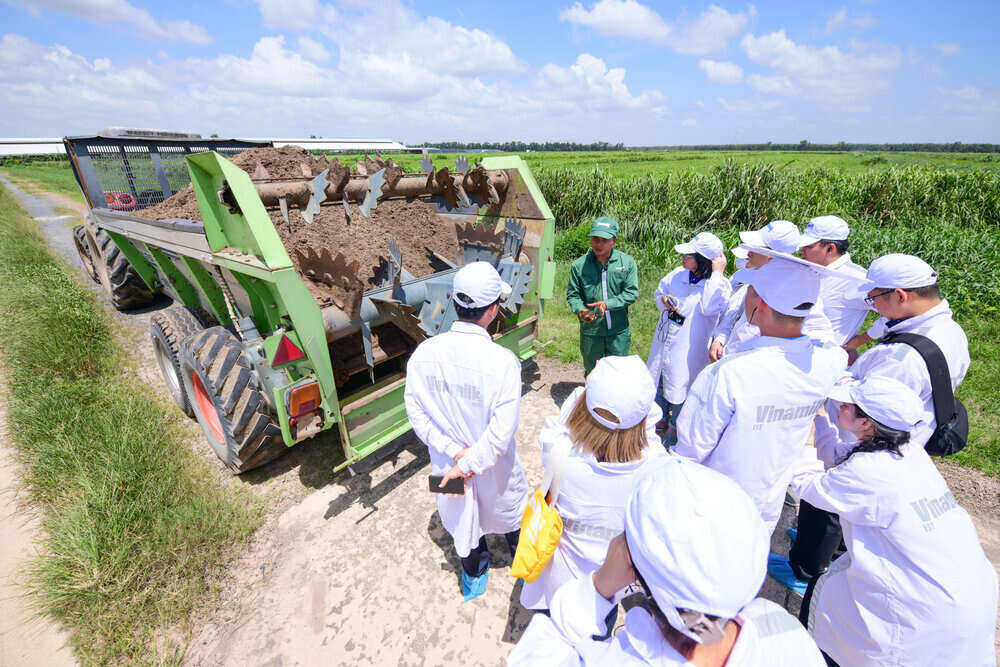
Livestock waste, which is a burning issue for all livestock models, has now become "black gold" to improve the land. Taking us closer to the processed organic fertilizer truck, Mr. Minh showed us a handful of cow dung that had been kept for at least 15 days and invited everyone to personally check the dung was completely dry and no longer odor-prone. A land circulation has gradually been formed and in the near future, businesses will also include it in software to assess soil health.
According to Ms. Nguyen Quynh Nga, Deputy Director of VCCI's Business Office for Sustainable Development, the practices of Vinamilk Green Farm Tay Ninh are a specific example of the "natural unlocking" approach, turning climate barriers into opportunities, creating a closed green circulation and spreading benefits to the community. Vinamilk has proven that nature is not a barrier but the key to helping us solve challenges from food security and international competitiveness for Vietnams agriculture, Ms. Nga emphasized.
"Nothing is thrown away" in the ecological circulation
Leaving the field, not yet surprised by the organic farming process, we observed more carefully the waste management stage, which surprised many people with the "clean" level of this process when almost nothing was left on the table.
In addition to turning 30-45 tons of cow manure per day into a rich source of organic fertilizer, the amount of methane gas generated during the manure processing process is not wasted but collected into the biogas system. This renewable energy source uses water to boil, starch for cows, dry staff clothes, dry grass and many other equipment to save more than 100 million VND in electricity bills per month.
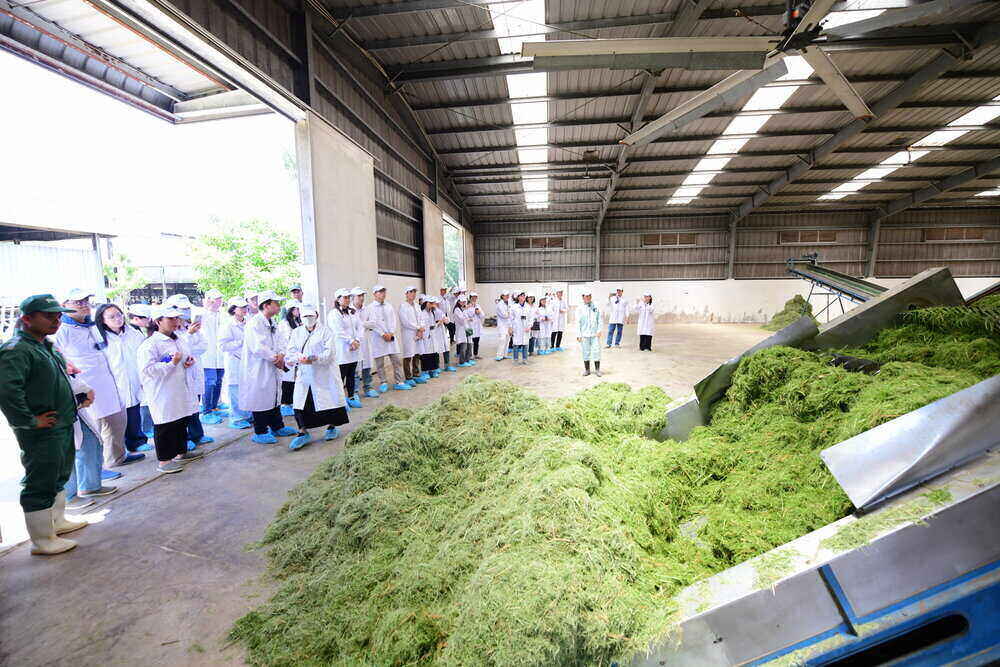
The group stopped for quite a while at the weed drying house, the weed drying system was invented by the farm's staff. Operating according to the principle of drying sweet potatoes, fresh mombasa grass can be dried at many levels according to demand and achieve quality equivalent to import. Thanks to that, the farm is autonomous in producing dried grass on the spot at a price of only about 2,000 VND/kg, 10 times cheaper than previously imported grass.
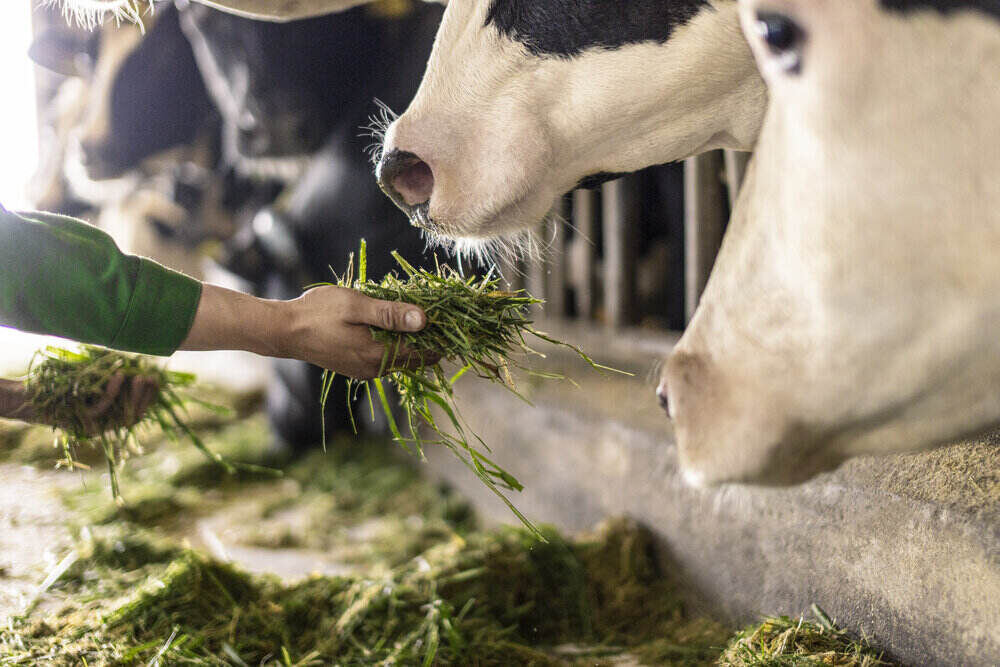
Fresh grass is cut and dried for the cattle to feed during the day, always keeping it fresh and nutritious. Although it is self-dried farm grass, it is still necessary to check the input grass to evaluate the finished products after drying before putting them in the " kitchen" to process food according to a closed process, ensuring the health of the herd" - Ms. Kieu Linh, Director of Veterinary Medicine, said.
High technology, using nature as the core
The destination of the recycled grass and corn cars will be the houses for the cattle and buffaloes. This is probably also the most anticipated place on the trip. Entering the barn, everyone shared the same feeling that this was the "coolest place" of the farm, the temperature was always at 27-28 degrees Celsius and there was absolutely no unpleasant smell even though it was home to a herd of nearly a thousand cows.
All thanks to the cooling system with dozens of giant fans, a special cage design to help ventilate and breathe. The automatic fog spray creates regular "artificial rains" every three minutes, cooling down and reducing stress for the cows. The roof of the barn is covered with a solar panel, which helps reduce temperature and create a clean power source.
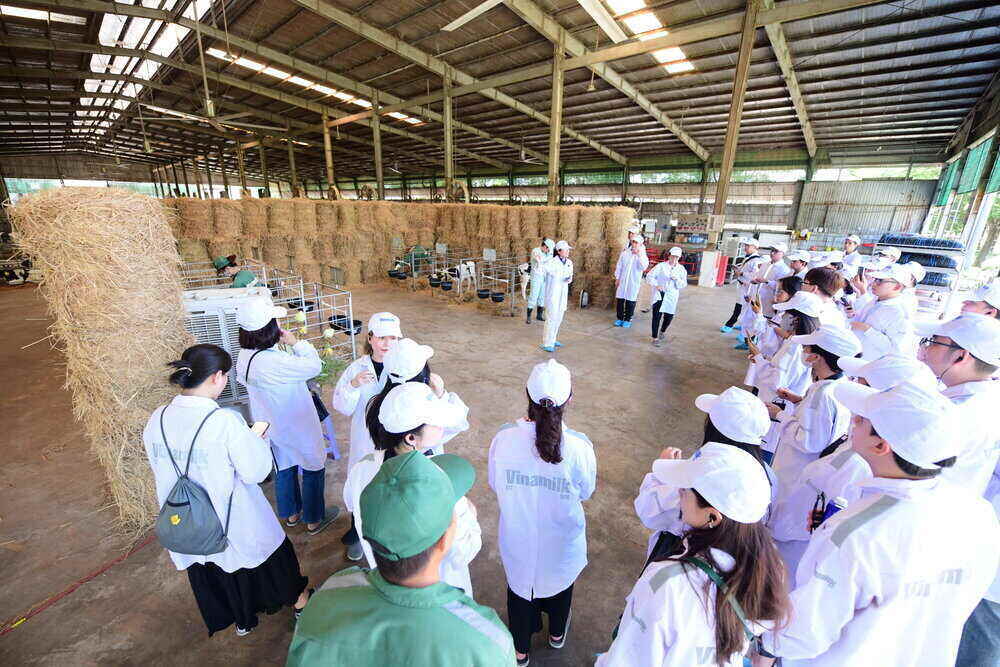
It is not too much to say this place is a "resort" for dairy cows. Not making the most of the land area to increase herd, Vinamilk generously retains 9 lakes interspersed with green areas for storage, water circulation and at the same time plays the role of " air conditioners, humidifiers" to help the air stay cool and pleasant for dairy cows, which are suitable for the temperate climate.
Vinamilk can freeze each individual cow thanks to electronic chips to monitor health, activity and design appropriate care regimes. Food is also managed by software, adjusting portions according to age, condition and mixing more than 20 types of nuts, grass... with many nutrients. Robots are ready to serve food and play relaxing music, automatic massagers "squeeze itch" when the cow comes close...
Although using many modern 4.0 technology devices, it is noteworthy that in caring for dairy cows, businesses always focus on the criteria of creating a living environment close to nature, limiting human intervention and making dairy cows comfortable, eating, sleeping, exercising according to their needs, living according to inherent natural habits..., Ms. Kieu Linh emphasized.
From "unlocking" nature, to "expanding" the circulation
What impressed many people was not only the circulation of soil, water, waste treatment... formed inside the farm but also the way Vinamilk expanded to the local community, creating a satellite agricultural area of the farms to develop in a sustainable direction.
Organic fertilizers provided to cooperating households and farm staff will be assigned to support farmers in cultivating according to good agricultural practice standards, ensuring quality. In 2024, the enterprise also covered and purchased more than 365,000 tons of bulk corn from farmers, increasing income for people. People become a link in the sustainable value chain, benefit and thereby participate deeply with businesses.
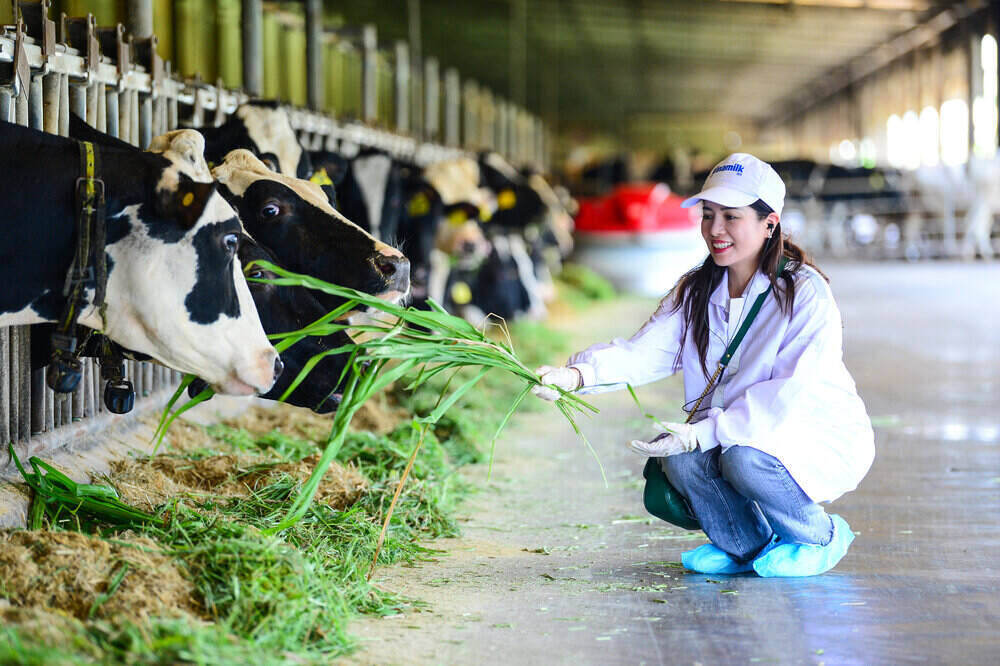
Expanding on the aspect of reducing greenhouse gas emissions, Mr. Nguyen Huynh Thanh Phong - Director of Sustainable Development Bureau Veritas Vietnam, highly appreciated Vinamilk's priority to "real" reduce at source, instead of compensating by buying carbon credits from outside, implementing according to a specific roadmap to achieve Net Zero by 2050.
Mr. Phong gave an example from the grass drying initiative at the farm, which not only helps Vinamilk become more autonomous, but also controls and reduces a large amount of greenhouse gas emissions from the production and transportation process if imported from abroad. Or closely collaborating with farmers will help Vinamilk better manage greenhouse gas emissions in its supply chain in the future.
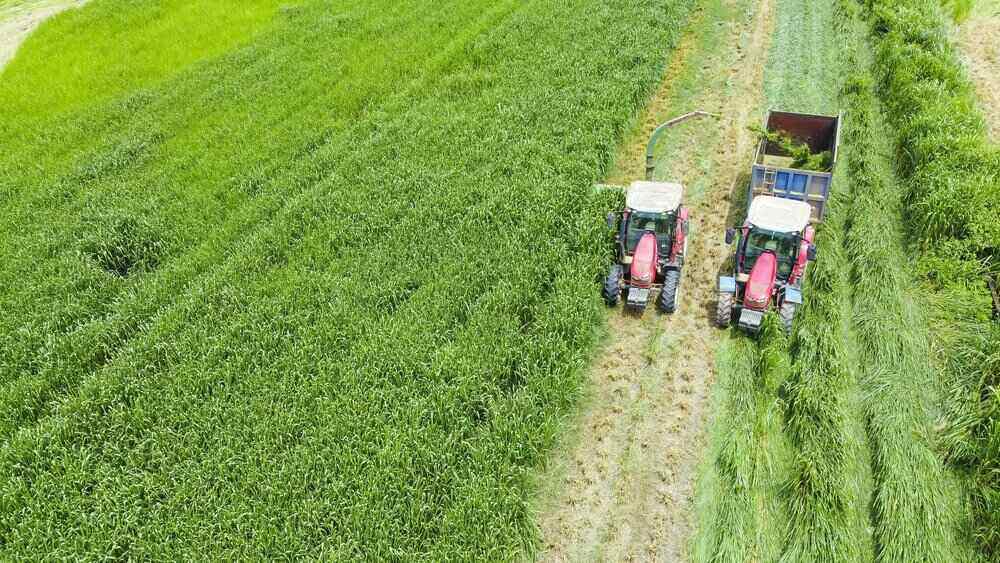
In the context of sustainable development being one of the strategic keywords of many businesses, referring to the roadmap and approach from Vinamilk helps businesses be more proactive in implementing international standards, or more specifically, ESG practices... which are increasingly important in the new-era agriculture, thereby leading the future trend when economic value will always go hand in hand with sustainable development.


